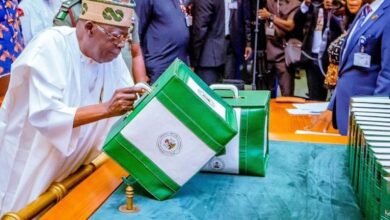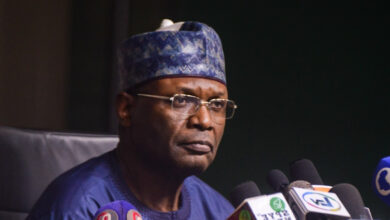Economic Reforms Already Delivering Positive Results – Tinubu

President Bola Tinubu has called for enhanced collaboration between the government, private sector, and international partners to drive Nigeria’s economy toward sustained growth and stability. Speaking during the 30th Nigerian Economic Summit (NES) in Abuja, Tinubu, represented by Vice President Kashim Shettima, highlighted the positive impact of his administration’s economic reforms, which aim to diversify Nigeria’s economy and reduce its dependence on oil revenues.
The theme of this year’s summit, “Collaborative Action for Growth, Competitiveness, and Stability,” reflects the urgency of addressing the complex economic challenges Nigeria faces, including domestic and global issues such as inflation, the COVID-19 pandemic, fluctuating oil prices, and internal security concerns. According to President Tinubu, these challenges have exposed the structural weaknesses of the Nigerian economy, such as its over-reliance on oil, underscoring the need for comprehensive reforms.
Tinubu detailed several key initiatives undertaken by his administration that are already delivering significant change. These include the removal of fuel subsidies, unification of foreign exchange rates, and an increased focus on sectors like agriculture, manufacturing, and the digital economy. He emphasized that economic diversification is essential for job creation and improving income levels, especially given Nigeria’s growing population.
The President also stressed the importance of ongoing investments in critical infrastructure projects, including roads, railways, and power plants, as central to improving productivity and connectivity. These projects, alongside regulatory reforms to ease the business environment, are designed to spur entrepreneurship and innovation.
In line with his administration’s focus on supporting small and medium-sized enterprises (SMEs), Tinubu outlined several measures aimed at empowering entrepreneurs. These include the establishment of MSME hubs, the provision of single-digit interest loans for manufacturers, and the creation of a new Credit Corporation offering low-interest consumer loans to workers. These initiatives are expected to strengthen the backbone of the Nigerian economy by fostering entrepreneurial growth and innovation.
President Tinubu also addressed the issue of national security, reaffirming his administration’s commitment to combating terrorism, banditry, and other threats that continue to undermine the country’s stability. He stressed that economic growth and security are deeply interconnected, and the government’s efforts to address these challenges are critical to fostering a stable environment for economic development.
The Nigerian Economic Summit, now in its 30th year, remains a vital platform for fostering dialogue and shaping economic policy recommendations. Tinubu’s call for collaborative action underscores the need for all stakeholders to play an active role in ensuring Nigeria’s path to growth, competitiveness, and long-term stability.



